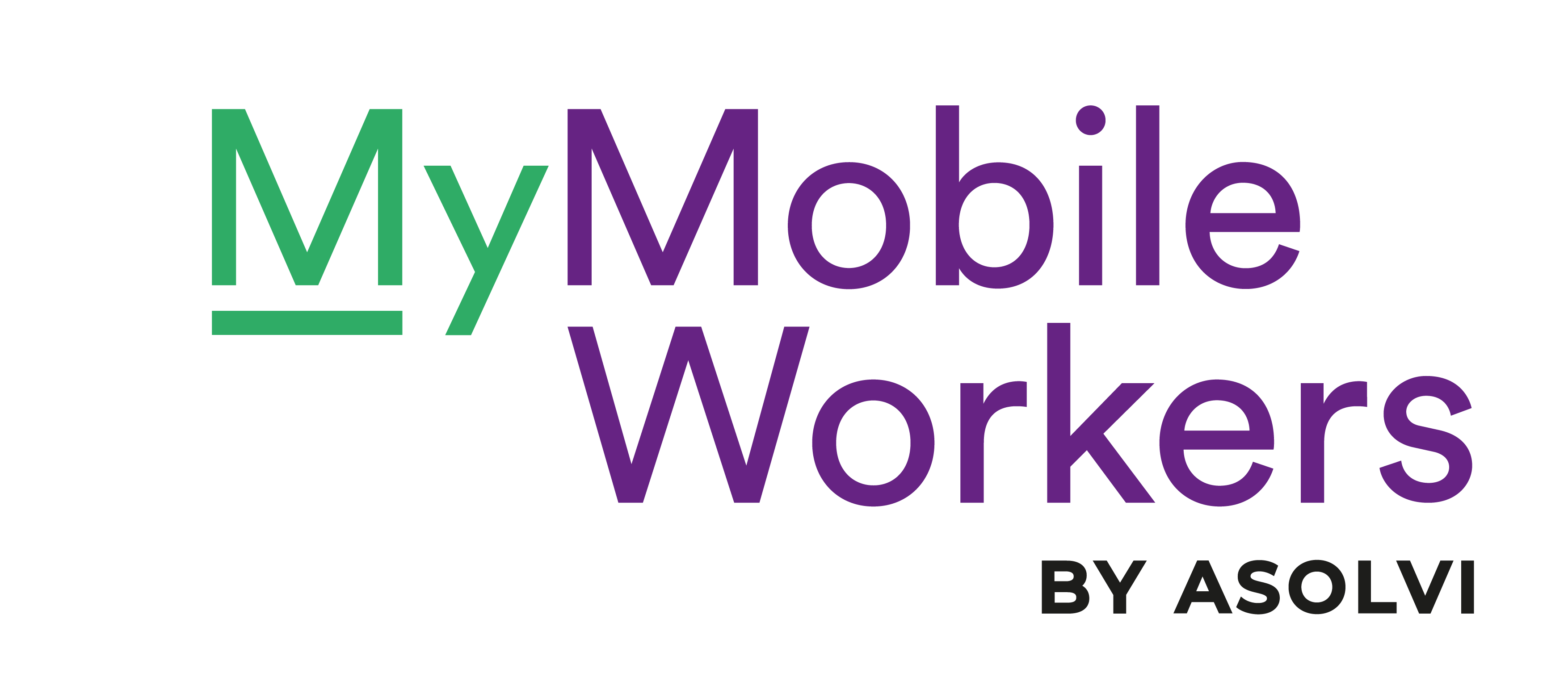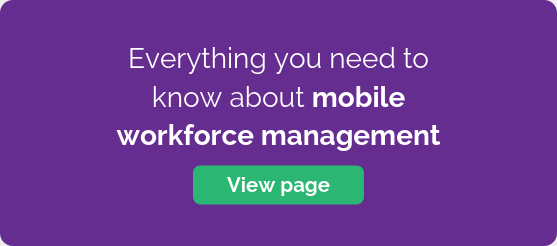A management system can only be effective if it has sufficient ‘buy ins’ from those employees who are going to be using it. This is particularly the case for mobile work operations where management and employees are spatially divided.
So while the benefits of switching to a mobile workforce management system may look good in theory - what’s the actual experience like for workers out on-the-road?
-3.jpg?width=600&name=expression-3073830_640%20(1)-3.jpg)
How employees benefit from mobile workforce management software:
- Reduced administration
- Improved safety standards
- Less micro management
- Results based approach
- Positive business culture
Reduced administration
A digital workforce management system boosts productivity by removing so many of the painstaking administrative chores that mobile workers are faced with.
With all information handled digitally and via a handheld device, it replaced paperwork tasks with automated processes to generate, collate and store task-related data.
The information is handled in real-time and instantly accessible to HQ, preventing employees from having to constantly pick up and drop off paperwork each day.

Improved safety standards
It’s particularly beneficial for solo workers who are operating in remote locations or who have to interact with the public. With real-time monitoring, managers can identify anything that’s not of the norm to catch potential problems early. The ability to actively monitor and maintain safety protocols is a major benefit of workforce management software. If anything goes wrong, GPS tracking means an employee’s exact location is always known.
The systems also allows safety procedures to be integrated into everyday workflow. On-screen checks and notifications help to guard against the danger of safety standards lapsing over time.
Less micro management
So much of the pressure experienced within mobile work operations is caused by poor communications. Managers feel the need to constantly check on the whereabouts of employees with calls, texts and emails.
Trying to micromanage in this way is inefficient, stress inducing and stifles productivity as field workers have to spend time providing regular updates.
The real-time location and status data providing by cloud-based software removes this source of stress, giving managers the reassurance they need to adopt a much less hands-on approach.
Results based approach
The ability to accurately monitor mobile work activities allows good performance to be rewarded. This could be for hitting deadlines or receiving positive feedback ratings from customers and clients.
Access to accurate performance data allows managers to set targets and issue rewards to those employees who are delivering the best results. It creates a level playing field for employees.
Having a log of activities also helps to protect workers if there’s any kind of customer complaint made about missed or late deliveries.
Positive business culture
With apps and smartphones playing such a major part of our everyday lives, it can feel like a step back in time to be working in a business that relies on paperwork and manual processes.
A mobile workforce system provides employees with the same speed and convenience that’s delivered by cloud-based social media apps. The systems are designed to make even the most complex and tedious tasks, fast and simple.
Rather than the system having to be imposed on employees from above, it’s a way of working that complements the digitally connected ways they’re already leading their lives.


